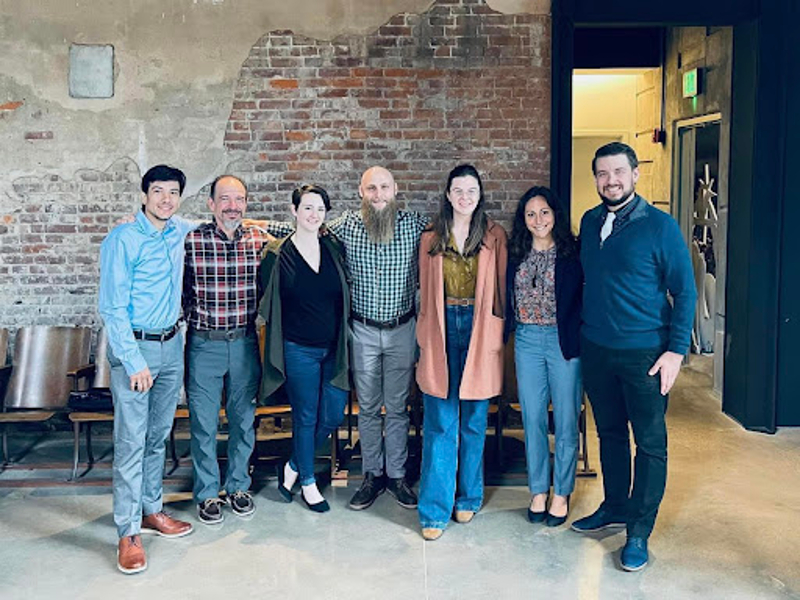
Spring is here and we’re nearing the end of another academic year. During 2022-2023 our undergraduates, graduate students, and faculty have continued to perform in ways that make me proud of and thankful for them. I’ll take this occasion to primarily focus on our graduate students.
The entire English department faced challenges during the pandemic, and has continued to do so as the plague waned. The disease prompted the administration to suspend funding for new graduate students for a year, and to cut back on funding for new students over the past two years. English departments across the country have and are facing similar situations. A strong cohort of graduate students is essential to the vitality of any program in the present and the future. I remain in touch with several people with whom I attended graduate school decades ago, and they’ve continually been an important source for an array of professional activities.

Our small incoming classes have been especially frustrating because our graduate program continues to attract many strong applicants every year. There are several reasons why so many exceptional students are interested in our department. Our emphasis on literary history and aesthetics makes us a “niche” program—we’re straightforward about what we offer and provide a cohesive education. Students know what they are getting when they enter our program and employers know what they are getting when they hire our graduates. Our faculty’s accomplishments have garnered attention across the country, prompting professors at other institutions to encourage students to consider our program. Our department’s standards for tenure and promotion are equivalent to those at the vast majority of top institutions, and people at those places recognize the high quality of our faculty’s research. Perhaps most importantly, people at other institutions see the way our current students and graduates perform at conferences, and notice that many are publishing good work.

Our students attend a variety of conferences each year, but I’ll comment on the two with which I’m consistently involved. The annual conference of the Association of Literary Scholars, Critics, and Writers and the annual conference of the Robert Penn Warren Circle both center on literary history and aesthetics. But the ALSCW is a much larger gathering—it attracts an all star cast of critics and creative writers from the United States and abroad. Faculty and graduate students from the strongest institutions participate in seminars, but no department is better represented than ours. More than twenty CUA faculty, graduate students, and alumni participated in the 2023 annual conference at Yale University—and that number is typical of our rate of participation from year to year. Our students and faculty shine, and I enjoy the immense pleasure of having faculty from other institutions go out of their way to tell me how impressed they are by our students and faculty. The Robert Penn Warren Circle is much smaller, but no group possesses more expertise on Warren and writers closely related to him. Five to ten members of our department or alumni attend every year—and over the years we have had more winners of the Eleanor Clark Prize for best essay by a junior scholar than any other department. These things, as well as our faculty and students’ involvement in other conferences and endeavors, makes us stand out. We should be extremely proud of what our department accomplishes, even when faced with considerable challenges. In the fall of 2023 we will have a larger cohort of graduate students entering our program, and our goal is to keep growing.
All my very best,
Ernest Suarez
David M. O'Connel Professor of Enlgish
Executive Director, Association of Literary Scholars, Critics, and Writers
Chair, Department of English
